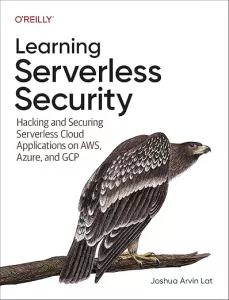Last updated on August 10, 2023
The AZ-305 Microsoft Azure Solutions Architect Expert certification is designed for experienced professionals who can design, implement, and manage Microsoft Azure solutions. The exam tests your skills in designing and implementing solutions for a variety of business needs, including scalability, security, and compliance. Prior experience in infrastructure management is essential for success on the exam.
The exam will measure your skills in the following areas.
- Design identity, governance, and monitoring solutions
- Design data storage solutions
- Design business continuity solutions
- Design infrastructure solutions
If you are eager to learn more about the AZ-305 exam, I recommend checking out the official exam skills outline. This study guide contains comprehensive review materials designed to help you pass the exam with confidence.
Note: Please keep in mind that in order to obtain this expert certification, you must first pass the Microsoft Azure Administrator certification exam.
Study Materials
Prior to attempting the Microsoft Certified: Azure Solutions Architect Expert exam, it is highly advised to go through these study materials. These resources are specifically designed to aid you in grasping the intricate concepts and services that will be addressed in the exam.
- Microsoft Learn – this website offers a variety of learning paths for different Microsoft certifications. For the AZ-305 certification exam, you can focus on the following topics:
-
- AZ-305 Microsoft Azure Architect Design Prerequisites
- AZ-305 Design identity, governance, and monitor solutions
- AZ-305: Design business continuity solutions
- AZ-305: Design data storage solutions
- AZ-305: Design infrastructure solutions
- Build great solutions with the Microsoft Azure Well-Architected Framework
- Accelerate cloud adoption with the Microsoft Cloud Adoption Framework for Azure
-
- Azure Documentation – the documents provide a comprehensive set of resources, including overviews, tutorials, examples, and how-to guides, which can help you understand various Azure services in depth.
- Azure Blog – to stay up-to-date on the latest technologies and offerings from Microsoft Azure, you can subscribe to their newsletter.
- Azure FAQs – the Azure documentation includes a comprehensive FAQ section that answers common questions about Azure services, use cases, and comparisons.
- Azure Free Account – the Azure portal offers a 12-month trial that gives you hands-on experience with Azure services. You’ll also get free credits to use for the first 30 days.
- Tutorials Dojo’s Azure Cheat Sheets – our cheat sheets make it easy to understand the information found in the Azure documentation. They are presented in a concise bullet-point format that highlights the essential concepts.
- Tutorials Dojo’s AZ-104 Microsoft Azure Administrator Practice Exams – our practice exams are consistently ranked among the best in the market. Each question comes with comprehensive explanations that will help you understand the crucial concepts you need to succeed in your Microsoft Azure certification exam on your first attempt.
Azure Services to Focus On
The Azure documentation is your primary source of information when studying for the AZ-305 certification exam. To understand the different scenarios in the exam, you should have a thorough understanding of the following services:
-
-
- Gain familiarity with various storage account types, supported services for each type, and how to differentiate between redundancy options and their appropriate usage.
-
-
-
- Understand and distinguish between different storage access tiers, learn how to control access to your blob files, and explore methods to protect your files from accidental deletion.
-
-
-
- Grasp the concept of Azure Files, explore the different storage tiers available, and understand the various access methods for managing file shares.
-
-
-
- Understand the concept of Azure Virtual WAN and its purpose, the different SKUs, and how Azure Virtual WAN integrates with other Azure networking services.
-
-
-
- Understand the different deployment options for Azure SQL Database and the different high availability and disaster recovery capabilities.
- Familiarize yourself with vCore-based and DTU-based purchasing models
-
-
-
- Understand the core concepts of Azure Cosmos DB, the consistency levels offered by Azure Cosmos DB, and how it provides high availability and data redundancy across different regions.
-
-
-
- Understand the purpose and capabilities of Azure Data Box and familiarize yourself with the different types of Azure Data Box devices and their use cases based on data transfer requirements.
-
-
-
- Understand the role of the different Azure routing solutions, such as Azure Front Door, Traffic Manager, Application Gateway, and load balancer, and familiarize yourself with the various features and functionalities. The most important is to know when to use the best routing solution that would best fit your requirements.
-
-
-
- Understand the concepts and purpose of Azure Migrate and the different scenarios. How to migrate Azure SQL database to Azure using offline and online methods using Data Studio.
- Take note of using Software Assurance for Azure Hybrid Benefit.
-
-
-
- Understand the purpose of Azure VPN Gateway and familiarize yourself with the different types of VPN connections.
- Understand the limitations, such as address space conflicts and gateway subnet CIDR notation.
-
-
-
- Understand the purpose and concept and familiarize yourself with the different connection options.
- Understand Border Gateway Protocol (BGP) support in Azure ExpressRoute
-
-
-
- Understand the purpose and concept and learn about hierarchical namespace
- Familiarize yourself with the integration of Azure Data Lake Storage with Azure services like Azure Databricks, Azure Data Factory, and Azure Synapse Analytics to build end-to-end data pipelines and analytics solutions.
-
-
-
- Understand the purpose and concepts and how it can integrate with other Azure services such as Azure Databrcicks, Data Lake Storage, and Synapse Analytics.
-
-
-
- Learn how to deploy and configure a virtual machine (VM), scale sets, dedicated hosts, highly available solutions, backup, policy, and recovery services vaults.
-
-
-
- Understand how to create an App Service plan, the runtimes that can be hosted in the same plan, and the configuration of deployment slots.
-
-
-
- Learn how to configure various Kubernetes components, high availability, virtual nodes, etc.
- Understand the concepts of containers and the differences between Azure container services.
-
-
-
- Gain familiarity with various hosting plans, how to configure identity, and understanding of APIs.
-
-
-
- Know the difference between ARM templates and Azure Blueprints.
- Understand the levels of scope: management groups, subscriptions, resource groups, and resources.
-
-
-
- Grasp the concepts of message queues and publish-subscribe topics.
-
-
-
- Know the different components, ways of authentication, and features of Azure AD.
-
-
-
- Understand how to read and create policy definitions, assignments, and remediation tasks.
-
-
-
- Learn how to create and assign a role and the types of built-in roles.
-
-
-
- Understand the concepts of secrets, key vault integration, permissions, restore, and backup.
-
-
-
- Be able to interpret metrics, configure log analytics, query and analyze logs, set up alerts and actions, and use other service features.
-
We suggest that you check out Tutorials Dojo’s Azure Cheat Sheets, which provide bullet-point summaries of the most important concepts on different Azure services.
Validate Your Knowledge
If you feel confident after going through the suggested materials above, it’s time to put your knowledge of different Azure concepts and services to the test. For top-notch practice exams, consider using the Tutorials Dojo AZ-305 Microsoft Azure Solutions Architect Expert practice exams.
These practice exams cover the relevant topics and question types that you can expect from the real exam. Each question has a detailed explanation and reference links, so you can understand why the correct answer is the most suitable solution. After you take the exams, you’ll be able to see which areas you need to improve on. Combining it with our cheat sheets, we’re confident that you’ll be able to pass the exam and have a deeper understanding of Azure.
Sample Practice Test Questions:
Question 1
You have an application named Manila running on an Azure virtual machine scale set. The data used by the application is stored in a SQL Server on Azure Virtual Machines. The application is not used 24/7.
You need to recommend a disaster recovery solution for the SQL database server. The solution must meet the following requirements:
-
The recovery time objective (RTO) should be within 30 minutes.
-
The recovery point objective (RPO) should be within 8 hours.
-
Must ensure the capability to restore service in the case of a regional failure.
-
Minimize costs.
What should you include in the recommendation?
- Use Azure Backup to backup the SQL server daily.
- Implement availability sets.
- Implement SQL Server Always On Availability Groups.
- Use Azure Site Recovery for the SQL server.
Question 2
You have an on-premises MySQL database server that you are migrating to Azure database for MySQL. The database administrator runs a script that shuts down the database nightly. You need to recommend a database solution that must meet the fulfill requirements
-
The database must remain accessible if a data center fails.
-
Customized maintenance schedule.
-
Minimize costs.
What should you recommend?
- Flexible Server – Burstable
- Single Server – Basic
- Flexible Server – General purpose
- Single Server – General purpose
For more Azure practice exam questions with detailed explanations, check out the Tutorials Dojo Portal:
Final Remarks
Having a deep understanding of Azure concepts is essential, but it is not sufficient to pass the exam. You also need to gain hands-on experience by using the Microsoft Azure Portal. Simulate different scenarios to deepen your understanding of various services. The combination of practical and theoretical knowledge will help you analyze difficult questions in the exam.
Lastly, here are some important reminders to keep in mind: always keep track of the time and review your answers before moving on to the next question, especially in the case study and yes/no question sections. Prior to your scheduled exam day, make sure to get enough rest. If you’re not feeling fully confident yet, remember that you have the option to reschedule your exam. Good luck, and we wish you the very best!






















